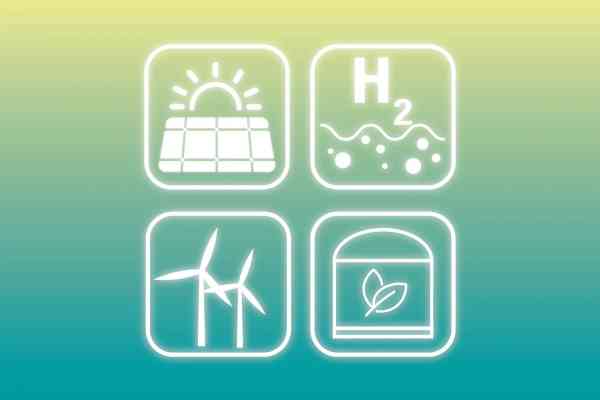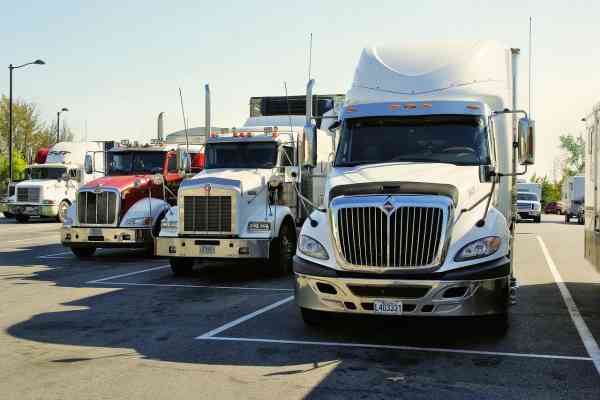January 7th, 2020 | 10:42 CET
Ballard Power, dynaCERT, NEL ASA - higher, faster, hydrogen!
The mobility of the future will be a mix of different energy sources. New technologies will make conventional combustion engines even cleaner and more efficient and, where it makes sense for the user, technologies with electronic drive motors will also be used. However, the German government is also attempting to influence the market by subsidising battery cars, a technology that is already being phased out in China. This political actionism from the Chancellor's Office is bypassing the market, and car manufacturers in Germany are noticing this too. A total of 57,533 purely electric cars were registered in 2019 until November - of a total of 3.6 million newly registered passenger cars.
time to read: 2 minutes
|
Author:
Mario Hose
ISIN:
NO0010081235 , CA0585861085 , CA26780A1084
Table of contents:

"[...] We can convert buses and trucks to be completely climate neutral. In doing so, we take a modular and incremental approach. That means we can work with all current vehicle types and respond to new technology and innovation [...]" Dirk Graszt, CEO, Clean Logistics SE
Author
Mario Hose
Born and raised in Hannover, Lower Saxony follows social and economic developments around the globe. As a passionate entrepreneur and columnist he explains and compares the most diverse business models as well as markets for interested stock traders.
Tag cloud
Shares cloud
Germany does not want battery cars
Detached from all redistribution efforts with tax money, the interest of the German population in purely electric cars is so low that it is negligible. Daimler's fully electronic EQC seems to be becoming an economic disaster. Just 55 vehicles were registered with the Federal Motor Transport Authority from May to November in 2019.
Hardly better was the situation at Audi, where 192 E-Tron were registered in November 2019. Technologies that flop despite incentives from tax money are obviously not innovations, because they neither solve an obvious problem nor create desires.
Charging stations for electricians are missing
Battery cars need power stations to be charged. Due to the high power requirements, conventional sockets, as found in households, are not sufficient and stronger charging stations are needed. In 2019, for example, around 250 new charging stations were registered in Lower Saxony, as in the previous year. In total, there are now around 1,000 public charging points in Volkswagen's home state.
The German government is aiming to achieve the target of seven million electric cars being registered in Germany by 2030. If this goal is to be achieved even approximately with battery-powered cars, several million charging points will probably be needed nationwide - with state subsidies, of course.
Hydrogen is the solution
While the planned economy scenarios of Chancellor Angela Merkel lack real reference and are obviously going to fail, investors are successfully backing hydrogen technologies. Shareholders of the manufacturer of fuel cells, Ballard Power, could experience a share price that went through the roof in the past months.
The same experiences made shareholders of NEL ASA, because the company develops hydrogen production systems as required for a network of filling stations for hydrogen-powered vehicles. Filling up with hydrogen takes as long as with petrol or diesel and for this reason it would be sufficient to add hydrogen stations to the German network of filling stations with just 14,000 locations.
Retrofitting instead of abolition
With an environmentally friendly solution for 'now and today', dynaCERT can inspire the capital market. The company has developed a retrofit technology for diesel engines that generates hydrogen on demand and adds it to the combustion process. The hydrogen is used less as a fuel and more as a catalyst, which significantly increases the efficiency of the combustion process. In addition to saving fuel, the emission of pollutants is also significantly reduced.
The company has been able to attract renowned investors such as the Canadian billionaire Eric Sprott and German automotive logistics specialist Dr. Jörg Mosolf. Smart Money usually knows what it's doing - and doesn't need taxpayers' money for it.
Conflict of interest
Pursuant to §85 of the German Securities Trading Act (WpHG), we point out that Apaton Finance GmbH as well as partners, authors or employees of Apaton Finance GmbH (hereinafter referred to as "Relevant Persons") may in the future hold shares or other financial instruments of the mentioned companies or will bet on rising or falling on rising or falling prices and therefore a conflict of interest may arise in the future. conflict of interest may arise in the future. The Relevant Persons reserve the shares or other financial instruments of the company at any time (hereinafter referred to as the company at any time (hereinafter referred to as a "Transaction"). "Transaction"). Transactions may under certain circumstances influence the respective price of the shares or other financial instruments of the of the Company.
Furthermore, Apaton Finance GmbH reserves the right to enter into future relationships with the company or with third parties in relation to reports on the company. with regard to reports on the company, which are published within the scope of the Apaton Finance GmbH as well as in the social media, on partner sites or in e-mails, on partner sites or in e-mails. The above references to existing conflicts of interest apply apply to all types and forms of publication used by Apaton Finance GmbH uses for publications on companies.
Risk notice
Apaton Finance GmbH offers editors, agencies and companies the opportunity to publish commentaries, interviews, summaries, news and etc. on news.financial. These contents serve information for readers and does not constitute a call to action or recommendations, neither explicitly nor implicitly. implicitly, they are to be understood as an assurance of possible price be understood. The contents do not replace individual professional investment advice and do not constitute an offer to sell the share(s) offer to sell the share(s) or other financial instrument(s) in question, nor is it an nor an invitation to buy or sell such.
The content is expressly not a financial analysis, but rather financial analysis, but rather journalistic or advertising texts. Readers or users who make investment decisions or carry out transactions on the basis decisions or transactions on the basis of the information provided here act completely at their own risk. There is no contractual relationship between between Apaton Finance GmbH and its readers or the users of its offers. users of its offers, as our information only refers to the company and not to the company, but not to the investment decision of the reader or user. or user.
The acquisition of financial instruments entails high risks that can lead to the total loss of the capital invested. The information published by Apaton Finance GmbH and its authors are based on careful research on careful research, nevertheless no liability for financial losses financial losses or a content guarantee for topicality, correctness, adequacy and completeness of the contents offered here. contents offered here. Please also note our Terms of use.




